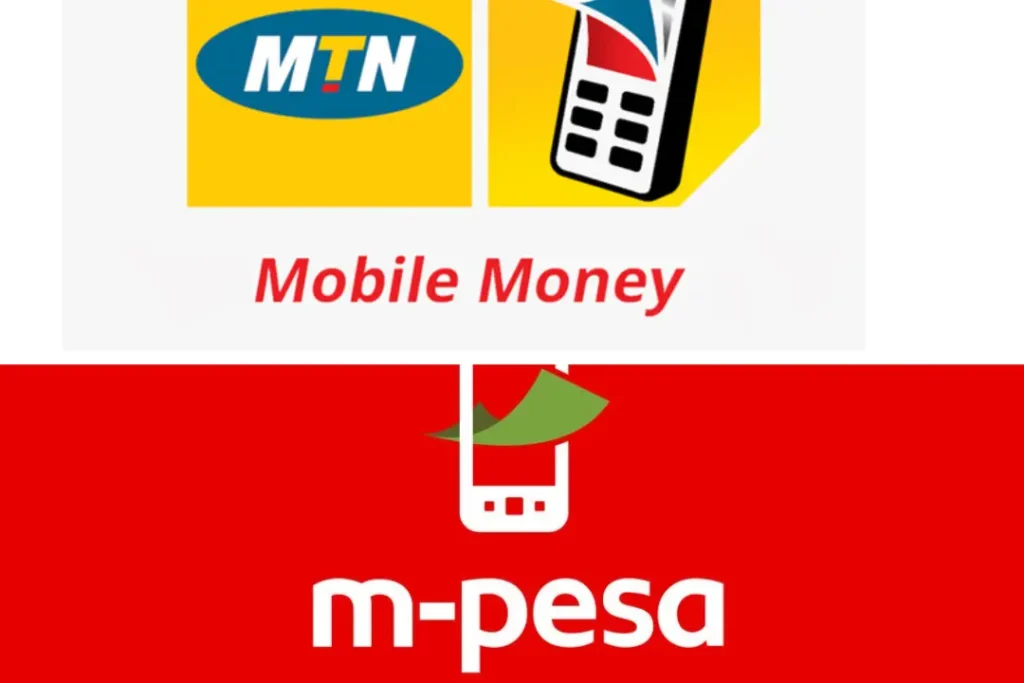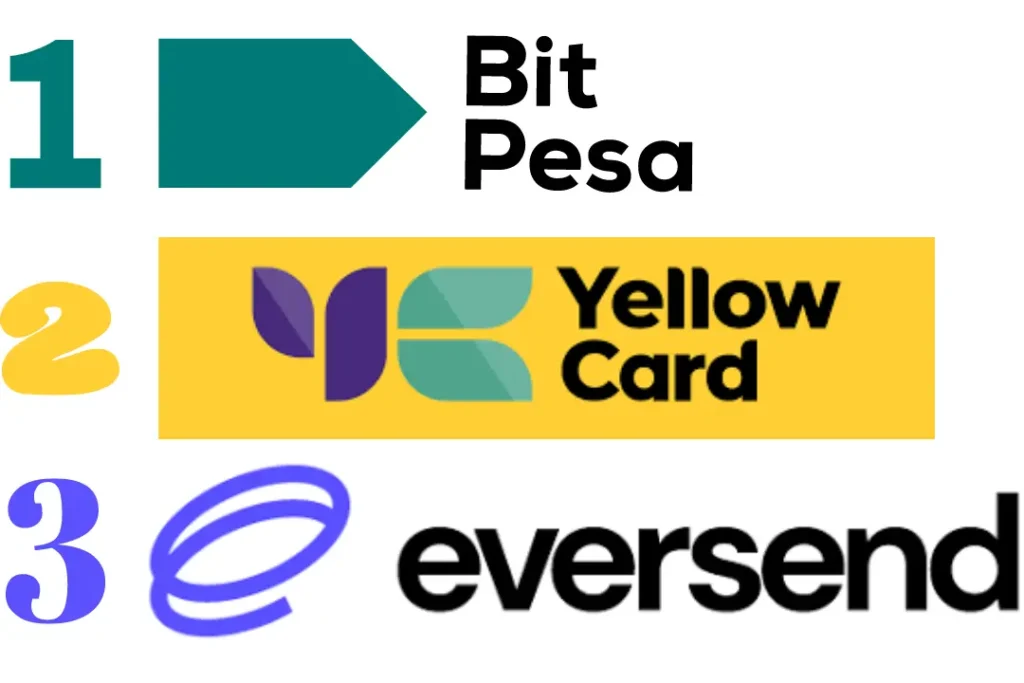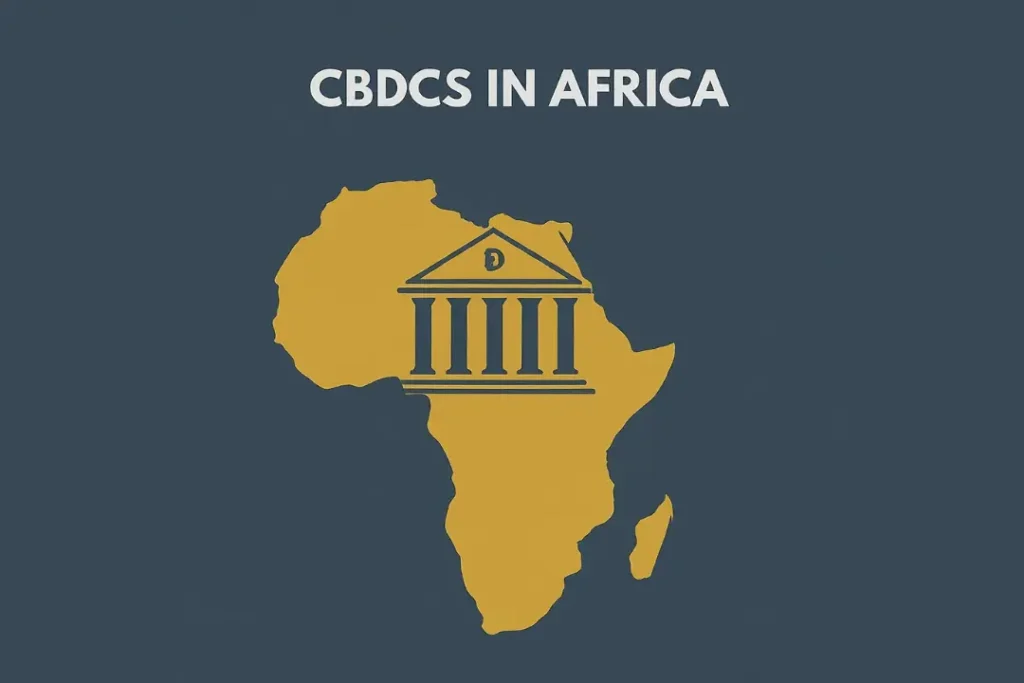Table of Contents
Sending money across borders to support loved ones is a lifeline for many Africans. Yet, traditional remittance services are often slow and shockingly expensive. Digital currency in Africa presents a solution.
Whether using mobile money networks, cryptocurrencies, or government-backed CBDCs, Africans are discovering faster, cheaper, and more convenient ways to transfer funds internationally – boosting economic activity and easing financial strain on families.
1. Financial Inclusion for the Unbanked
A significant portion of Africa’s population remains unbanked, meaning they lack access to basic financial services like savings accounts, loans, and secure money transfers.
This exclusion creates significant barriers to economic empowerment and participation in the modern economy. Digital currency in Africa is transforming this landscape, particularly through the phenomenal growth of mobile money.
Mobile Money as the Game-Changer

Mobile money platforms, like the pioneering M-Pesa in Kenya, or widespread services like MTN MoMo, require only a basic mobile phone (no smartphone needed) to function.
These platforms allow users to store, send, and receive money digitally – effectively turning their phones into virtual wallets.
This innovation bypasses the need for traditional bank accounts and infrastructure, providing essential financial services to those previously excluded.
The impact has been astounding. Millions of Africans, including those in rural areas, now have access to a safe and convenient way to manage their money.
They can pay bills, purchase goods, save money, and even obtain microloans – all through their mobile devices.
This increased financial inclusion is crucial for individual development and broader economic growth across the continent.
Key Statistics (Illustrating Impact):
- Recent statistics from GSMA indicate that Sub-Saharan Africa remains the global leader in mobile money adoption.
- Refer to a reputable report/study about financial inclusion progress in Africa attributed to mobile money to strengthen the point.
Let’s Talk Digital Currency in Africa
While mobile money is the most widespread solution for the unbanked, other forms of digital currency in Africa are also playing a role. Cryptocurrency adoption is rising, and government-backed Central Bank Digital Currencies (CBDCs) are being explored for their potential to increase financial access.
2. Faster and Cheaper Remittances
Remittances, the money sent by individuals working abroad back to their families, are an economic lifeline for many African countries.
However, traditional cross-border payments can be frustratingly slow and riddled with high fees. This eats into the hard-earned money of migrant workers and creates a financial burden for relatives relying on these funds.
Cryptocurrency in Africa and its Remittance Potential

Digital currency in Africa offers a promising solution. Cryptocurrencies, especially stablecoins (whose value is pegged to fiat currencies like the US dollar), have the potential to make remittances significantly faster and more affordable.
By bypassing intermediaries and utilizing blockchain technology, cryptocurrency transactions can often be completed in minutes rather than days, and with notably lower fees compared to traditional remittance services.
While cryptocurrency adoption comes with its own learning curve, it has immense potential to disrupt the remittance market in Africa. Platforms focused specifically on cryptocurrency remittances are emerging, offering competitive rates and streamlined processes.
Key Advantages of Crypto for Remittances:
- Speed: Transactions settle much faster than traditional bank transfers.
- Low Fees: Reduced reliance on intermediaries can minimize transaction costs.
- Accessibility: Cryptocurrency platforms may be accessible even to those without traditional bank accounts.
Important Considerations:
- Volatility: Some cryptocurrencies can experience price fluctuations – stablecoins are designed to mitigate this risk.
- Education: Many Africans may be unfamiliar with cryptocurrency – resources and education are needed to facilitate wider adoption.
Reputable Cryptocurrency Remittance Platforms for Africa:

- BitPesa: An established platform with a focus on business and individual remittances across several African countries.
- Yellow Card: Offers cryptocurrency exchange and remittance services, allowing users to send and receive money across various African borders.
- Eversend: A multi-currency mobile wallet with remittance capabilities, simplifying money transfers within Africa and beyond.
Disclaimer: Cryptocurrency markets are evolving, and it’s essential to conduct thorough research before choosing any platform for remittances. Regulations, fees, and available cryptocurrencies can vary between providers. Always prioritize platforms with a track record of security and positive customer reviews.
3. Empowering Small Businesses

Digital currency in Africa offers significant opportunities for small businesses, often hampered by limited access to traditional financial resources and cumbersome cross-border payments.
Expanding Opportunities
- Accepting Digital Payments: By accepting digital payments, including mobile money and cryptocurrencies, businesses can tap into a broader customer base – even reaching international clients. This removes the dependency on cash-only transactions and increases sales potential.
- Supplier Transactions: Cryptocurrency, particularly stablecoins, can offer faster and cheaper ways for small businesses to pay international suppliers. This can potentially lower costs and enhance their supply chain efficiency.
Unlocking Potential with Cryptocurrency
Meet Aisha, a talented Kenyan textile entrepreneur with a passion for vibrant African fabrics. Her small business creates beautiful handmade accessories, home décor, and clothing. While local sales were steady, Aisha dreamed of reaching customers worldwide and improving her profit margins by sourcing dye supplies more affordably.
After researching how to buy cryptocurrency in Kenya, Aisha discovered the potential benefits for her business. She chose a reliable platform and took the following steps:
- Expanding Market Reach: Aisha added cryptocurrency payments (alongside mobile money) to her simple online store. This attracted international customers drawn to her unique designs and opened up new revenue streams.
- Streamlining Supply Chain: Using a stablecoin pegged to the US dollar, Aisha started paying her Indian dye supplier directly with cryptocurrency. Transactions were significantly faster and cheaper than using traditional bank transfers.
The Impact:
- Sales Growth: Aisha’s business thrived thanks to global exposure. International customers could easily pay with cryptocurrency, boosting sales and income.
- Reduced Costs: The lower transaction fees and faster international payments saved Aisha money on dye supplies, directly improving her profit margins.
- Inspiration for Others: Aisha’s story demonstrates how cryptocurrency, when used responsibly, has the power to unlock opportunities for small businesses across Africa.
4. Building a More Efficient Economy
Many African economies still heavily rely on cash-based transactions. While essential, this reliance comes with significant drawbacks for businesses and governments. According to a 2022 McKinsey report titled “Digital Payments in Africa: A continent going cashless”, cash-based transactions can:
- Hinder Business Growth: Cash management for businesses is time-consuming and expensive, requiring secure storage and transportation.
- Increase Government Costs: Cash handling and distribution are costly for governments, diverting resources from other development priorities.
- Limit Financial Inclusion: Cash-based economies often exclude individuals who lack access to traditional banking systems.
Digital currency in Africa offers the potential to streamline economic processes, improving efficiency and transparency.
CBDCs in Africa – Enhancing Efficiency and Transparency

Central Bank Digital Currencies (CBDCs) are digital versions of a country’s fiat currency, backed by the central bank. CBDCs utilize blockchain technology, offering benefits like:
- Streamlined Transactions: Digital payments between businesses, individuals, and governments can be near-instantaneous, cutting down on processing times and delays associated with cash or traditional banking systems.
- Enhanced Record-Keeping: The inherent traceability of blockchain technology can improve record-keeping, reducing errors and making it easier to track economic activity.
- Combating Corruption: Increased transparency could reduce opportunities for corruption and illicit financial flows.
Future Outlook: The eNaira as a Pioneer
Nigeria’s eNaira, one of the first CBDCs launched in Africa, serves as a crucial example to watch. While widespread adoption takes time, the eNaira has the potential to demonstrate the benefits of CBDCs for enhancing economic efficiency. The impact of the eNaira on the Nigerian economy, and lessons learned, will be valuable for other African nations exploring CBDCs.
Key Considerations:
- Infrastructure: Building a robust digital infrastructure is essential for broad CBDC implementation.
- Accessibility: Efforts must ensure inclusivity so all citizens benefit from this technology.
Challenges & The Future
Throughout this post, we’ve explored the ways digital currency is making life easier in Africa – from expanding financial inclusion to boosting cross-border remittances and empowering small businesses. Yet, it’s essential to acknowledge the challenges of digital currency adoption in Africa:
- Limited Internet Access: Stable and widespread internet infrastructure remains a hurdle in some regions.
- Volatility Concerns: The fluctuating prices of certain cryptocurrencies can create uncertainty.
- Need for Education: Raising awareness about how to use digital currencies safely and responsibly is crucial.
The Future: Optimism and Innovation
Despite these challenges, the future of digital currencies in Africa holds immense promise. Governments are exploring the potential benefits of CBDCs, and cryptocurrency adoption is growing as platforms and access improve.
Continued financial innovation in this space has the power to reshape African economies, offering greater efficiency, transparency, and accessibility. We can expect that the digital currency landscape in Africa will continue to rapidly evolve.
Want to learn more about the digital currency solutions available in Africa? Here are a few helpful resources on my blog to further explore the topics we’ve discussed:
- Understanding Digital Wallets: Find out what they are and discover the top options in West Africa and specifically in Ghana:
- Mobile Money vs. Cryptocurrency: Learn the key differences: Mobile Money vs. Cryptocurrency
- Cross-Border Payments: Compare popular options: Chipper Cash vs. Eversend: 5 Top Differences
- Virtual Cards in Ghana: Discover how to create one for free: 3 Easy Ways to Create a Free Virtual Card in Ghana
Discover more from Ken Arhin
Subscribe to get the latest posts sent to your email.
